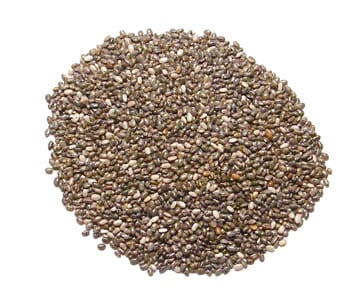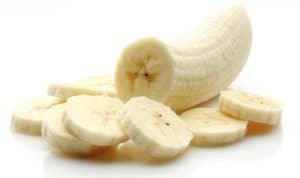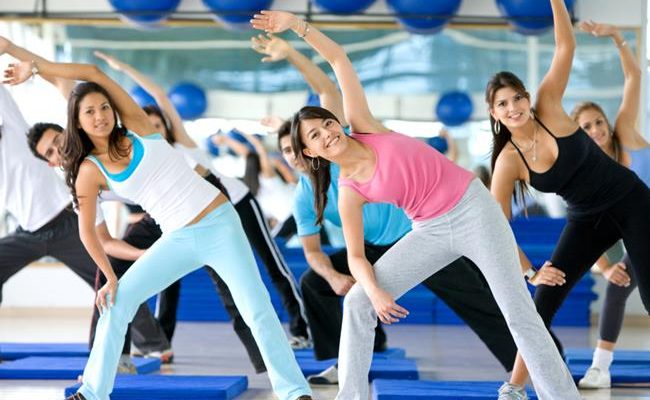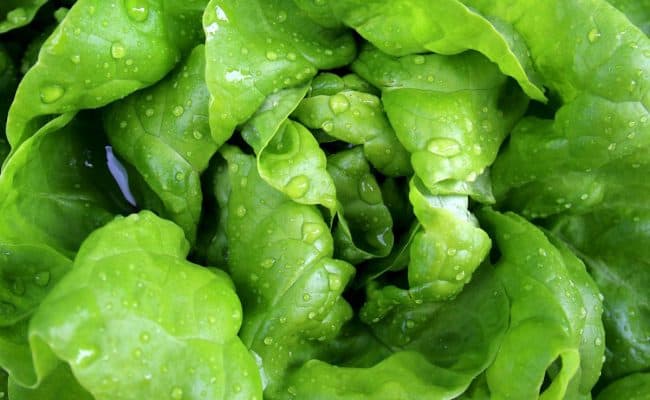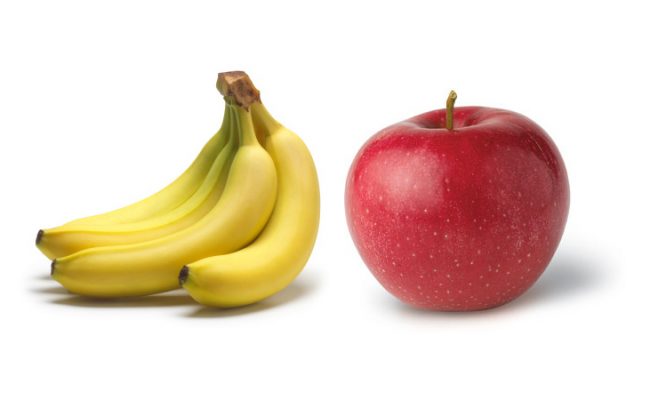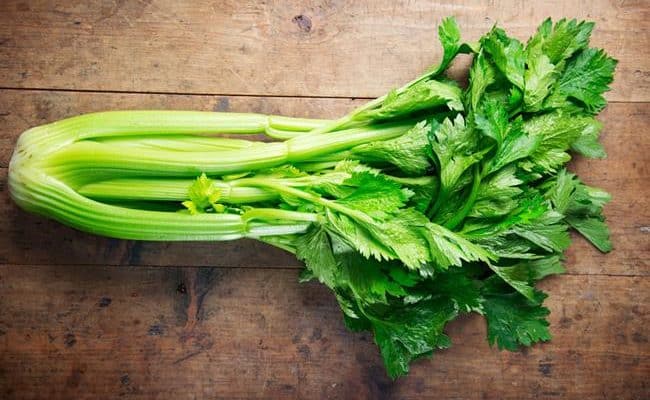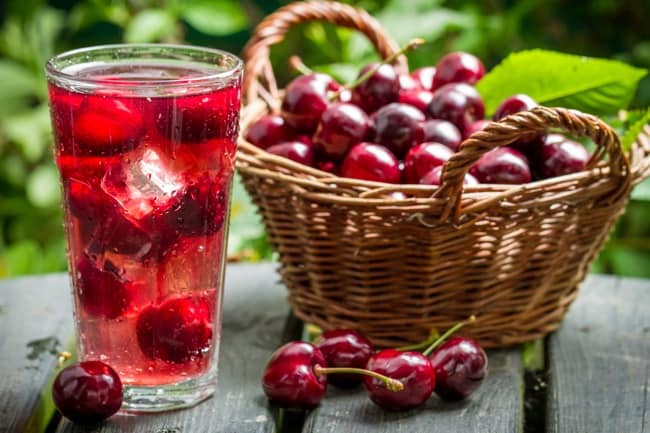
The supplement and sports nutrition industry is projected to reach over $6 billion by 2018. However, many nutrients in these products marketed to athletes of all abilities are most conveniently found in natural foods. Many foods and drinks have been shown in research to provide unique benefits to muscle growth, lowering inflammation or providing quick energy needed for workouts.
A diet high in fruits and vegetables can provide a rich source of antioxidants protecting cells from damage caused by exercise, and getting the right balance of healthy carbohydrates, fats and proteins can also provide sustained energy and building blocks for protein synthesis.
Tart cherry juice
Athletes, whether professional or just beginning, may have a higher need of antioxidants because exercise can increase the amount of damage caused from free radicals.
Researchers recommend (1) to get these needed antioxidants from food over supplements.
Tart cherry juice is a rich source of antioxidants and has been shown in some research to actually help athletes’ muscles recover quicker after exercise.
The polyphenols in tart cherry juice may help lower inflammation, stress and damage associated with strength training or long distance running (2).
A 2011 study (3) concluded tart cherry juice improved the recovery of muscles after strength training compared to participants who were given a placebo.
How much tart cherry juice do you need to help your muscles?
Most studies with tart cherry juice and exercise performance used the amount of people drinking 2 servings of 8 or 12 ounces per day of tart cherry juice.
Sweet cherry juice has not shown the same benefit of tart cherry juice with working out.
Drinking cherry juice right before a hard workout may not benefit your workout right away, but it could help your muscles recover better so your workouts the following day can be better.
Beetroot juice
Another juice showing promise for helping with exercise performance is beetroot juice.
Beetroot juice is rich source of nitrates, which if taken right before intense exercise may help muscles use oxygen more efficiently during exercise.
A 2011 study (4) found that beetroot juice helped cyclists increase their power output in a time trial race. Participants ingested about 2 cups of beetroot juice 2 hours before the time trial.
Not all studies have shown a benefit with beetroot juice and exercise performance, so more research is needed.
It appears that beetroot juice may be most beneficial when it is consistently consumed and for shorter, high intensity exercises.
Beetroot juice taste can be unappetizing, so if you want to try it try mixing it in a smoothie first.
Chia seeds
Chia seeds were a staple in ancient Mayan and Aztec cultures and for good reason.
Chia seeds are a rich source of all essential amino acids, fiber, omega 3’s, iron, calcium and magnesium.
While there is not substantial research indicating chia seeds could provide any extra benefit for exercise performance, they are a compact source of many nutrients exercisers need especially omega 3’s. They can also provide sustained energy without causing large swings in blood sugar.
A word of caution with chai seeds: they are high in fiber. Eating too many right before exercise could cause some gastrointestinal distress. They absorb water, so they should be consumed with enough liquid.
In fact, an easy way to get some chia seeds in your diet is to add a tablespoon or two to your water bottle and sip through the day.
Chia seeds can also be sprinkled on salads, yogurt, oatmeal or just eaten plain.
Berries
All berries are a rich source of antioxidants, vitamins and minerals which can benefit exercise performance. Berries and other fruits and vegetables are especially high in vitamin C.
Eating a high amount of berries may also help preserve muscle mass.
A study from University of Pittsburgh found that older adults who had higher intake of dietary vitamin C and E had higher muscle preservation later in life.
Researchers aren’t sure if vitamin C and E help preserve muscle or if a higher intake of C and E is associated with a healthier diet over all.
Bananas
The humble banana is easy to digest and a quick source of carbohydrate fuel for exercise.
With only about 100 calories for a medium banana, it can make an easy, nutritious snack before, during or after a workout.
Bananas are a natural source of the electrolyte potassium which plays a role in fluid balance, muscle and nerve contraction.
Having adequate electrolyte and fluid levels in the body can also help prevent muscle cramps.
They can be paired with nut butter, added to a smoothie or eaten as a slightly sweet snack anytime.
Nuts/ nut butters
A little goes a long way with nuts and nut butters. Pairing them with a carbohydrate source like fruit or bread can provide a steady balance of energy, protein and healthy fats that can help sustain you through a workout.
Nuts are also high in iron, B6, potassium and magnesium.
Iron is important for adequate oxygen delivery to muscles, B6 is used to convert food into energy for cells, potassium is important for muscle contraction and fluid regulation and magnesium is important for bone health and energy production.
Chocolate milk
What’s so great about chocolate milk? It has a special balance of carbohydrates and protein that is considered the optimal ratio after exercise to rebuild muscle.
Many studies have shown a benefit of chocolate milk after exercise on protecting muscle from damage.
For example, a 2012 study (5) found muscle protein synthesis was increased and whole body protein breakdown was less in subjects who ingested chocolate milk compared to a carbohydrate beverage after an endurance run on a treadmill.
If you have double workouts in a day, drinking chocolate milk after a depleting workout may help your muscles refuel after the first exercise session and help you go longer on your next exercise bout later in the day according to a 2008 study (6).
